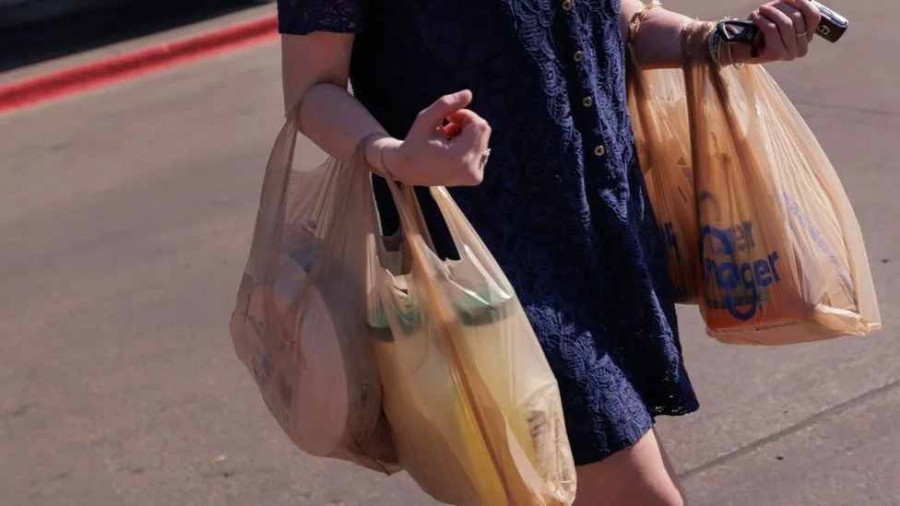US challenges Kroger Albertsons deal warning of higher prices

The US is taking legal action to block the merger of two major grocery chains, warning it would lead to higher prices.
The Federal Trade Commission (FTC) and a number of US states, said Kroger's planned $24.6bn purchase of rival Albertsons would eliminate important competition "exacerbating the financial strain consumers across the country face today".
The two firms vowed to defend the deal. The court battle comes as rising prices remain a key political issue. US food prices have risen by 25% over the last four years and US President Joe Biden has been under pressure to show that his administration is taking action to address the problem.
Kroger, operator of brands such as Harris Teeter and Fred Meyer, is one of the biggest grocers in the US by sales. It announced plans to purchase Albertsons Companies in October 2022,
saying it would put it in a better position to compete with the likes of Walmart and Amazon. The tie-up would create a firm with about 5,000 stores across 48 states, employing about 700,000 people and serving an estimated 85 million households.However, critics of the deal urged regulators to block it, saying Americans have suffered as the grocery industry has become increasingly dominated by a smaller number of big players.
In its announcement on Monday, the FTC said the deal would result in store closures, job losses and fewer choices for buyers, as well as higher prices. It has filed a lawsuit to stop the deal. Stacy Mitchell, co-executive director of the anti-monopoly watchdog, the Institute for Local Self-Reliance, cheered the move to block the merger.
"This decision shows that the FTC understands how the outsized power of big retailers is damaging the entire food system," she said. "There was no upside to this merger for anybody other than the top executives at these two companies and their investors."
Kroger had proposed selling more than 400 stores to address monopoly concerns -a collection of sitesthe FTC criticised as a "hodgepodge" that did not adequately address concerns.
The two firms have denied there were any plans for store closures or job cuts and said they planned to invest in lower prices.
After the FTC's announcement, Kroger said blocking the merger would lead to higher prices and fewer stores, while strengthening rivals who, unlike Kroger and Albertsons, do not employ staff who belong to a labour union.
"Contrary to the FTC's statements, blocking Kroger's merger with Albertsons Companies will actually harm the very people the FTC purports to serve: America's consumers and workers," Kroger said in a statement. "The merging parties look forward to litigating this action in court."
The FTC during Mr Biden's presidency has taken a sceptical view toward mergers, suing to block deals in a range of industries including tech, health care and airlines.
Its stance has drawn criticism of over-reach, while its record has been mixed. Though some firms have abandoned deals after being challenged, the FTC has also lost some high profile court battles.
Tags :
Previous Story
- Tesla temporarily slashes prices for some Model Y...
- US says it dismantles 'Warzone RAT' malware service,...
- Toyota recalls 50,000 US vehicles over airbag 'injury...
- US to announce billions in subsidies for advanced...
- Japan's Nippon Steel exec meets US Congress members...
- India's TCS to diversify to other markets amid...
- Rupee weighs dollar's 'decent' recovery, poor risk and...
- Apple to Halt US Sales of Smartwatches After...